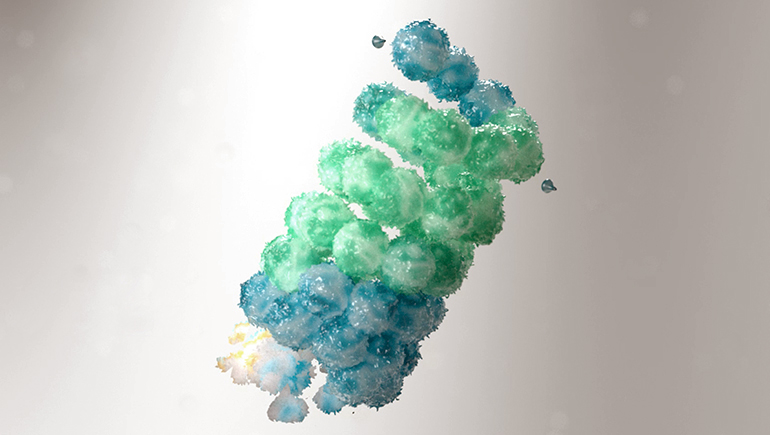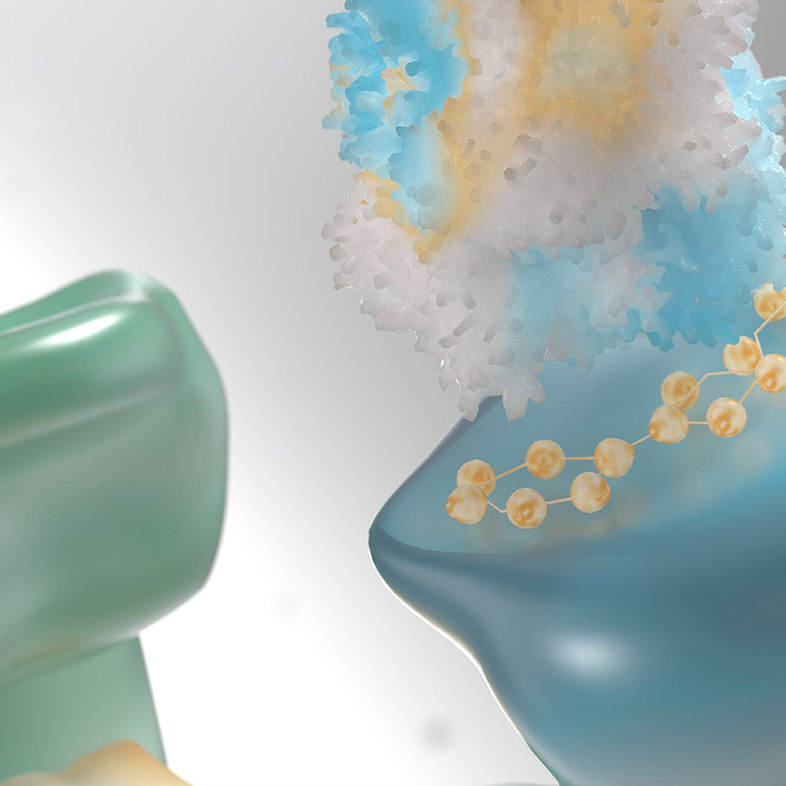Protein degradation resources
- X
Protein degradation is the process by which proteins are naturally destroyed in a cell in order to maintain protein homeostasis, or an equilibrium of proteins in the human body. The body is constantly making and remaking proteins (creation), while also removing ones that have become inactive or mutated (degradation). When a cell is unable to degrade certain proteins, the proteins can accumulate, causing diseases like cancer. With targeted protein degradation, researchers are harnessing the cell’s own machinery to degrade several whole new classes of proteins that were previously considered “undruggable.”
With several protein degraders in clinical trials developed based on decades of unique research and clinical experience, Bristol Myers Squibb is a leader in the targeted protein degradation field, and the only company that has successfully developed and commercialized protein degrader agents. Targeted protein degradation is one of Bristol Myers Squibb's differentiated research platforms, supporting our innovative R&D efforts across therapeutic areas. Our scientists are leveraging three different modalities of targeted protein degradation – molecular glues, also called CELMoDTM agents, ligand-directed degraders (LDDs) and antibody drug conjugate (ADC) degraders. This three-pronged approach provides more opportunities for breakthroughs and therapeutic strategies that could one day offer meaningful new options for patients across a broad range of diseases including certain types of myeloma, lymphoma, solid tumors and myelodysplastic syndromes, as well as sickle cell disease.
Learn more about Bristol Myers Squibb’s legacy and scientific expertise in protein degradation.











